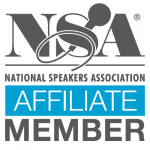While social media has streamlined our ability to connect and share information instantaneously, it has also created a medium for the distribution of mass-misinformation. The Onion is universally recognized and lauded as a trailblazer in the area of satire, but in a world where web-clicks amount to cash-flow, a more sinister trend has emerged with online content creators claiming to emulate the Onion’s model, but providing news stories that lack in humor and are blatantly false.
Essentially, they are peddling lies to be shared on Facebook and Twitter, and monetizing these fraudulent news stories as they go viral. I cannot begin to count how many times I have seen a link on my newsfeed to a story about Breaking Bad returning for a sixth season, celebrity death hoaxes, or that the Ebola virus has reached (insert small town here). Not only are these websites propagating falsehoods for monetary gain—they are actually influencing opinion to the point that results in PR personnel statements to combat the truth-distortions.
“Don’t believe everything you read on Facebook” should be the tagline for the Social Media Age. To combat the influx of misinformation that elicits reactions ranging from elation to overwhelming paranoia, Facebook announced in August that it would begin experimenting with a “satire” tag on links. Targeted less at the Onion than the wealth of websites hiding under the umbrella of “satire” to rationalize their existence (only denoted in the fine print on their sites), Facebook incorporating this functionality, in my opinion, would be a public service.
Conspiracy theory is often romanticized. Occam’s razor be damned, it’s in human nature to propose the “what ifs” and alternate explanations relating to certain events. This is especially prevalent on social media because of its conversational nature, and the thread that tends to develop when someone decides to post a controversial or unconfirmed story. As people we value attention, and nowhere is it easier to receive it than online in the form of likes, comments and shares.
Unfortunately when that online attention works as promoting propaganda, something has to be done. As of yet, Facebook has not instituted the ability to tag links as “satire,” but with any hope it arrives soon before the fiction becomes indistinguishable from reality.






Leave a Reply